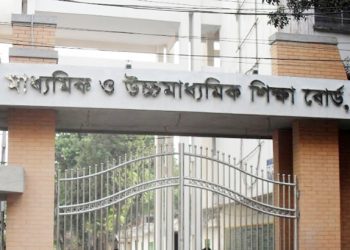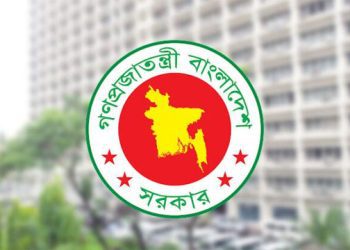Not being able to secure desired jobs in formal sector is not unusual for NU graduates, suggests a recent study
Anas Rahman, 27, a graduate from Bogra’s Government Azizul Haque College, is now working as a clerk at an advertising firm in the capital. He completed his honours degree back in 2018 in political science.
After remaining unemployed for a year, Anas had come to Dhaka and started working as a delivery person for a food delivery service during the pandemic-induced lockdown. He joined the advertising firm three months ago.
“This is not what I dreamed of doing when I started my higher studies. I had applied to at least 50 jobs via job search sites and through personal connections. I could not secure a single job and then the Covid-19 pandemic started and brought all sorts of miseries along with it,” he told Dhaka Tribune.
Anas is now preparing for bank jobs.
Dissatisfied at his educational qualifications, Anas said: “Half of the jobs close the door on me once they hear that I graduated in political science.”
A significant portion of people who have graduated from colleges affiliated with National University (NU) face similar situations every year.
A recent “Tracer Study on Graduates of Tertiary-Level Colleges” by the Bangladesh Institute of Development Studies (BIDS) reports that an honours degree holder from NU has to wait around 20 months before securing a job on average, while the waiting period is 4.5 months for those who have completed their master’s degree.
As many as 2,050 students, including those who graduated in 2017 and current third- and fourth-year students, of 54 colleges in the country participated in the study.
Is the job crisis only affecting NU students?
According to experts working in various sectors, the Covid-19 pandemic has forced many experienced professionals into unemployment and the lack of job openings for fresh graduates is at an all-time low.
While the pandemic situation is exceptional, not being able to secure their desired jobs in the formal sector seems commonplace for NU students, or at least that is what the study suggests. A similar 2016-18 study had also reached the same conclusion.
IK Selim Ullah Khondaker, principal of Dhaka College, one of the seven affiliate colleges of Dhaka University, attributed such a grim scenario to NU students passing exams by only reading guide books and notes instead of studying the required textbooks.
“Students’ failure rate in final-year semester finals has increased recently as they are unable to properly write answers to questions prepared by Dhaka University teachers,” he noted.
“They are staging protests to let them pass, but by observing their situation we sense that they are not guided properly to meet the demands of our job market,” he added.
The Dhaka College principal also said that the government plans to thoroughly change the academic system of the colleges and introduce advanced technical education in the syllabuses.
Meanwhile, questioning the accuracy of the study, NU Vice Chancellor Prof Md Mashiur Rahman termed the study partials and motivated.
“Are NU students the only ones that struggle to get jobs? Did the study mention how long it takes for a public or private university student to bag a job? They reviewed those who graduated five years ago, how does it explain the current situation?” he questioned.
On top of complaining about the unemployment issue, BIDS should have also analyzed how much money the government spends on an NU student.
“This type of incomplete report destroys the morale of our students,” he remarked.
Contribution in the informal sector
The BIDS study found that 21% of NU graduates are salaried employees, while 66% of them are unemployed, 1.5% are self-employed, 7% are involved in full-time/part-time studies and 5% of NU graduates do not belong to the labour force.
NU VC Prof Rahman said that this kind of study does mention the contribution these students make to the informal sector.
However, that cannot be considered a success for NU students, argued Brac Institute of Governance and Development (BIGD) Executive Director Imran Matin.
The students would not have wasted so many years of their lives pursuing higher education if they wanted to end up working in the informal sector, he argued.
Dated curriculum and a lack of necessary skills to meet the requirements of the job market are preventing NU graduates from entering the workforce, Imran said.
Some 70% of the respondents of the BIDS study also said that the need for a certificate to find a good job is one the reasons they got admitted to their respective colleges.
Stating that the subjects the NU students are taught are not in much demand, Imran said: “We should focus more on vocational courses such as IT or language skills instead of traditional theoretical subjects. A structured apprenticeship program may be adopted as well to produce a skilled workforce.” source- dhaka tribune


















Discussion about this post